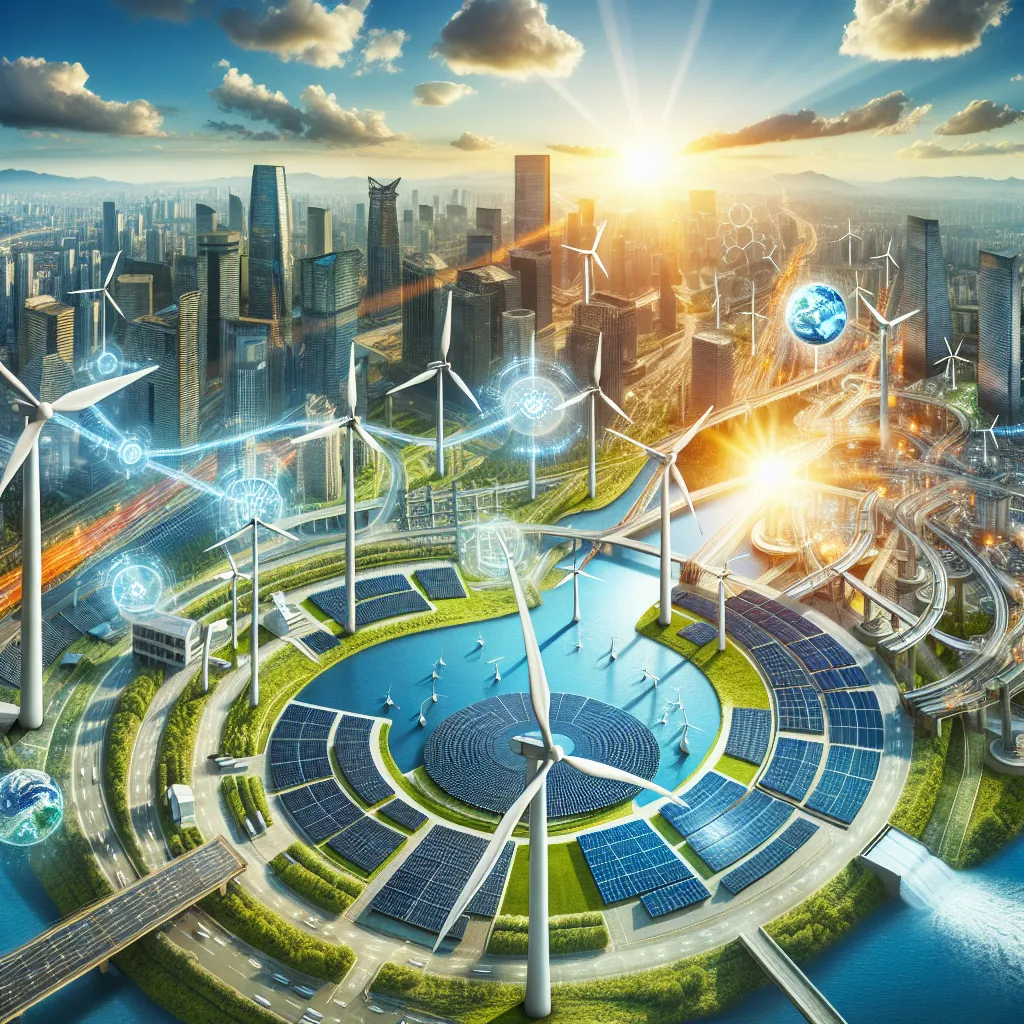Energy systems are a crucial topic in the IELTS exam, particularly for those interested in environmental sciences, engineering, or sustainable development. Understanding and effectively using related vocabulary can significantly boost your performance across all sections of the test. Let’s explore this important concept and learn how to use it confidently in your IELTS preparation.
Understanding “Energy Systems”
“Energy systems” (noun phrase)
Pronunciation: /ˈenədʒi ˈsɪstəmz/
Definition: Energy systems refer to the infrastructure and processes used to produce, distribute, and consume energy in various forms.
Context and Usage
-
Example: The transition to renewable energy systems is crucial for combating climate change.
Analysis: This sentence highlights the importance of energy systems in environmental discussions, a common topic in IELTS Writing Task 2 and Speaking Part 3. -
Example: Researchers are developing more efficient energy systems to reduce global carbon emissions.
Analysis: This usage demonstrates how energy systems are linked to scientific research and innovation, topics often explored in IELTS Reading passages. -
Example: The integration of smart grids into existing energy systems can improve power distribution efficiency.
Analysis: This example showcases the technical aspect of energy systems, which might appear in IELTS Listening sections dealing with lectures or discussions on technology. -
Example: Developing countries face unique challenges in upgrading their energy systems to meet growing demands.
Analysis: This sentence connects energy systems to global development issues, a frequent theme in IELTS Writing and Speaking tasks. -
Example: The city’s new urban planning strategy prioritizes sustainable energy systems for all new constructions.
Analysis: This usage relates energy systems to urban planning and sustainability, topics that often appear in IELTS Task 1 Writing (graphs and charts) and Speaking Part 2 (describing places).
Frequency in IELTS
The term “energy systems” and related vocabulary frequently appear in IELTS, especially in:
- Reading passages on environmental science, technology, and global development
- Listening sections featuring lectures or discussions on energy and sustainability
- Writing Task 2 essays on environmental issues or technological progress
- Speaking Part 3 questions about energy, environment, and future technologies
 Renewable Energy Systems
Renewable Energy Systems
Vocabulary Analysis
Word Structure
- Energy (noun): The capacity to do work
- System (noun): A set of connected things or parts forming a complex whole
When combined, these words create a compound noun that describes the comprehensive infrastructure for energy production and use.
Synonyms and Related Terms
- Power grids
- Energy infrastructure
- Renewable energy networks
- Sustainable power systems
- Clean energy solutions
Antonyms and Contrasts
- Fossil fuel dependency
- Non-renewable energy sources
- Inefficient power systems
- Traditional energy infrastructure
Memorization Techniques
Mind Mapping
Create a mind map with “Energy Systems” at the center, branching out to different types (solar, wind, hydroelectric), components (generation, distribution, storage), and related concepts (sustainability, efficiency, innovation).
Storytelling Method
Imagine a city transforming its energy systems. Visualize solar panels on rooftops, wind turbines on hills, and smart grids connecting homes. This narrative can help embed the concept and related vocabulary in your memory.
Practical Application
Sample IELTS Writing Task 2 Question
Some people believe that the development of sustainable energy systems should be the top priority for governments worldwide. To what extent do you agree or disagree?
Outline Using Target Vocabulary
Introduction:
- Acknowledge the importance of energy systems in modern society
- Thesis: Agree that sustainable energy systems should be a priority
Body Paragraph 1:
- Discuss the environmental benefits of transitioning to renewable energy systems
- Example: Reduction in carbon emissions, combating climate change
Body Paragraph 2:
- Explore the economic advantages of investing in sustainable energy systems
- Example: Job creation in the green energy sector, reduced energy costs long-term
Body Paragraph 3:
- Address potential challenges in implementing new energy systems
- Suggest solutions: International cooperation, gradual transition plans
Conclusion:
- Reaffirm the importance of prioritizing sustainable energy systems
- Call for balanced approach considering economic and social factors
Speaking Practice
Prepare to discuss energy systems in various contexts:
- Describe the energy system in your hometown. How has it changed over time?
- What are the main challenges in implementing renewable energy systems in rural areas?
- How might advancements in energy systems affect daily life in the future?
Conclusion
Mastering vocabulary related to energy systems is crucial for IELTS success, especially given the frequency of environmental and technological topics in the exam. By understanding the context, analyzing the vocabulary, and practicing its use in various IELTS tasks, you can significantly enhance your performance.
Remember to incorporate this vocabulary into your regular English practice. Try using terms like “energy systems,” “renewable infrastructure,” and “sustainable power networks” in your conversations and writing exercises. This active usage will help solidify your understanding and improve your fluency in discussing these important topics.
Do you have any questions about using energy systems vocabulary in IELTS? Share your thoughts or practice attempts in the comments below!


